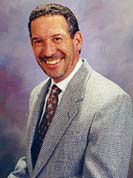The DSM-IV (Diagnostic and Statistical Manual of Mental Disorders) describes a formula clinicians can use to screen plaintiffs in lawsuits for malingering of mental disorders. This formula is composed of four elements, one of which is the failure of an individual to cooperate with prescribed treatment. According to the DSM-IV, the clinician should "strongly suspect" malingering when any combination of the four elements is noted.
Clinicians should be careful in concluding there may be malingering even if a recommendation of treatment has not been implemented and even when the individual being assessed has two or more of the four elements described in DSM-IV. There may be alternative reasons why an individual has not followed a recommendation for treatment that have nothing to do with malingering of psychological symptoms.
One of the defining symptoms of Post-traumatic Stress Disorder (PTSD) is a pattern of avoidance of situations that are associated with a trauma. If an individual has been severely traumatized or witnessed the severe injury or death of another person in, for example, an automobile accident, the individual may avoid conversations about that accident because those conversations would be likely to arouse bothersome memories or frightening nightmares about the trauma or other forms of severe emotional distress. Avoiding conversations about an extremely emotionally-charged subject may be one way a traumatized individual may attempt to protect himself or herself from the futher experience of trauma.
A clinician, however, may misinterpret the unwillingness of a plaintiff to participate in treatment as an indicator of malingering.
If malingering is suspected, the clinician should obtain several sources of information, such as data from an interview, psychological tests designed to identify malingering and information from collateral contacts.
What appears to be a sign of malingering may be a genuine symptom of a mental disorder.
For more information on this subject, please visit my Forensic Psychology Services website and click on the button labeled "Articles".
Subscribe to:
Post Comments (Atom)

5 comments:
Thanks for all of the information on clinical psychology. I've been trying to help my sister find a good place to study psychology at, do you have any ideas?
Good post to follow..
chicago personal injury lawyer
The blog was absolutely fantastic! Lots of great information and inspiration, both of which we all need!
tampa personal injury law firms
Forensic science helps in finding the hidden truth, which we can't see,the way it works is awesome.
DNA for Immigration
Very Interesting article, Thanks for share it. Website
Post a Comment